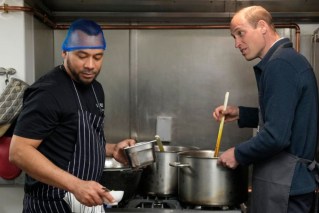Rocking isn’t just for babies: Adults sleep better, longer, with improved memory


Adults who are rocked gently to sleep have better memory consolidation than those who don't. Photo: Getty
Sleeping like a baby is a laughable term for zombie mothers held captive by a relentlessly howling infant. Some nights they’re bound to sit and rock that cradle for hours – because nothing else seems to work.
And now a new study suggests we never get over our love of rocking – not only does it afford adults longer, deeper sleep – but facilitates better memory consolidation.
“Having a good night’s sleep means falling asleep rapidly and then staying asleep during the whole night,” said Laurence Bayer from the University of Geneva, Switzerland in a statement from Cell Press.
“Our volunteers – even if they were all good sleepers – fell asleep more rapidly when rocked and had longer periods of deeper sleep associated with fewer arousals during the night. We thus show that rocking is good for sleep.”
Eighteen volunteers were recruited
They spent a night sleeping in the laboratory to get used to it – and also to the rocking bed that was set to sway back and forth every four seconds, and on a gentle arc, moving a total of 10.5 centimetres.
Then, for two experimental nights, nine participants slept on stationary beds; the others slept on the rocking beds.
All of them were wired up to an electroencephalogram (EEG) to monitor their brain activity.
The data showed that once asleep, “the participants spent more time in non-rapid eye movement sleep, slept more deeply, and woke up less.”
Second round of tests
In a second round of tests, they found that rocking increased the number of “sleep spindles” during slow wave sleep. These are fast bursts of brain activity that make a spindle shape on the recording paper of an EEG and are believed to prevent a sleeper from waking during a disturbance.

Should we replaced boring old beds with hammocks?
Spindle activity during slow wave sleep is thought to relate to the replaying of memories, which is important for memory consolidation.
In order to test whether rocking had a positive impact on memory, the participants were given a series of word pairs to learn before going to bed – and when they woke in the morning.
Participants who were rocked to sleep performed better on the morning memory test than those who slept in a normal bed. The rockers did better on the test than they had the previous evening – an improvement not observed in those who slept without rocking.
“This increase in overnight memory accuracy was supported by a decrease in the number of errors and an increase in the number of correct responses only during the rocking night,” the researchers wrote.
Even mice fall asleep when rocked
In a separate study, to see if other species could be rocked to sleep – and therefore suggests we have been programmed to respond to rocking via evolution – Dr Paul Franken from the University of Lausanne, Switzerland tested the rocking method on mice, as they lay in their cages.

Experiments with mice suggest that we are evolutionarily programmed to respond to rocking. Photo: Getty
Although “mice had to be rocked four times faster than humans,” the motion helped mice fall asleep faster and stay asleep longer. However, there was no evidence the mice slept more deeply.
Researchers had suspected that the effects of rocking on sleep were tied to rhythmic stimulation of the vestibular system, the sensory system that contributes to the sense of balance and spatial orientation.
To explore this notion in the mouse, according to a statement from Cell Papers, the researchers studied animals whose vestibular systems were disrupted by non-functioning otolith organs, found in their ears. Their studies showed that mice lacking working otolith organs experienced none of the beneficial effects of rocking during sleep.
Taken together, the two studies “provide new insights into the neurophysiological mechanisms underlying the effects of rocking stimulation on sleep,” Bayer and Perrault write.
The findings may be relevant for the development of new approaches for treating patients with insomnia and mood disorders, “as well as older people, who frequently suffer from poor sleep and memory impairments”.








